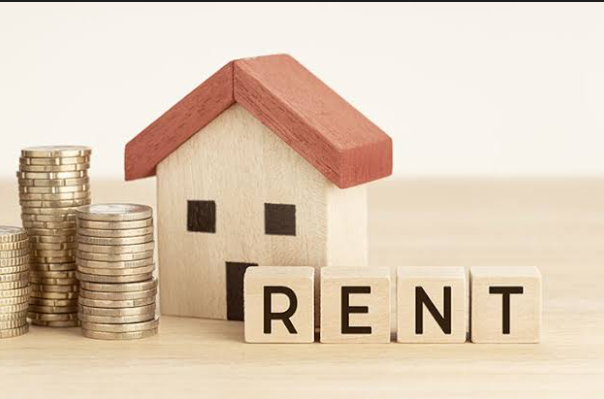
From 600k to 1 Million: Tenant War Erupts as Nigerian Landlady Raises Rent Overnight

A mild drama has unfolded online after a Nigerian lady shared how her mother, a landlady, suddenly raised the rent of her three-bedroom flats from ₦600,000 to ₦1,000,000, sparking outrage among her tenants and igniting a broader debate about the cost of living crisis in Nigeria.
In a post that quickly gained attention on X (formerly Twitter), user @adesuwaaaaaa—who goes by Suwa—revealed that her mother’s tenants had turned hostile after she announced the new rent increase. “Imao, my mom increased her 3-bedroom from 600k to 1 million and her tenants are fighting her. They've stopped greeting her,” Suwa wrote, sprinkling humor into a situation that many Nigerians found far too relatable.
The reaction was swift and divided. While some people sympathized with the tenants for facing yet another rent hike in an already crushing economy, others argued that landlords, too, are victims of inflation and have no choice but to adjust prices to stay afloat.
One reply that summed up the tenants’ frustration came from @SayheytoDenzel, who wrote, “Just woke up one morning to increase a rent of 600k to 1m, and y’all think it’s normal. We are finished in this country.” His statement echoed the sentiments of millions of Nigerians who feel cornered by a never-ending surge in prices—from food to fuel, electricity to rent—without a corresponding rise in income.
The online debate turned into a heated conversation about fairness, survival, and the deepening economic despair that seems to spare no one. Many users pointed out that housing costs have skyrocketed beyond what the average working-class Nigerian can afford. In major cities like Lagos and Abuja, rent has almost doubled in many neighborhoods over the past three years, with landlords citing the rising cost of building materials, taxes, and maintenance as justification.
But for tenants, the sudden jump from ₦600,000 to ₦1,000,000 is more than just an adjustment—it’s a financial earthquake. A user commented that the average salary in Nigeria doesn’t align with the cost of living anymore, asking, “How are we supposed to survive when landlords wake up and add ₦400,000 just like that? Do they think tenants are planting money?”
Others, however, defended Suwa’s mother. Some argued that property owners have been enduring their own version of hardship, as inflation and economic instability make property maintenance increasingly expensive. Cement prices, for instance, have doubled in less than two years, while the cost of paint, plumbing materials, and tiles have all surged. “If she keeps collecting 600k, she’ll start running at a loss,” one user countered. “₦600,000 in 2020 is not ₦600,000 in 2025. Everything has changed.”
Still, it’s the manner of the increase that seems to have struck a nerve. Many commenters noted that such sharp, overnight jumps in rent—without warning or phased increments—are what strain landlord-tenant relationships. The part of Suwa’s post that mentioned the tenants “stopping greeting” her mother has since become a viral joke, with many using it to express how tense relationships can get when financial decisions turn personal.
“They’re not greeting her because greetings don’t pay bills,” one user quipped. Another wrote, “The day your landlord increases rent by 400k, even ‘Good morning ma’ will start sounding like an insult.”
But beneath the humor lies a very real reflection of Nigeria’s current housing crisis. The situation paints a vivid picture of how inflation and economic uncertainty are slowly eroding the social fabric that once held communities together. Rent, once a predictable yearly responsibility, has become a source of anxiety for millions.
For young Nigerians especially, the situation has become dire. With youth unemployment hovering at alarming levels and wages stagnant, many are being forced to move back in with family, split apartments with friends, or relocate to less developed areas. In Lagos, for instance, what used to be a middle-class neighborhood is now financially out of reach for even white-collar workers.
Some social media users pointed out that the story is symbolic of a much larger problem—an economy where everyone is struggling to survive, and in that desperation, empathy is thinning out. A few joked that Suwa’s mother might soon find herself with empty apartments, while others said the tenants would eventually pay up, grudgingly, because they simply have no alternative.
“The sad part is, no matter how angry they get, they’ll renew,” one comment read. “Finding a new apartment now costs an arm and a leg, plus agents and agreement fees.”
Indeed, moving out in protest isn’t the easy solution it once was. Apart from the skyrocketing rents, tenants face additional charges from agents, legal fees, and sometimes even “caution fees.” By the time all costs are added up, relocating often feels like jumping from one frying pan into another.
The real estate market, meanwhile, remains largely unregulated, allowing landlords to set prices as they please. There’s no standardized control system for rent increase, and most tenants have no legal protection against sudden or steep hikes. This lack of structure, according to housing experts, is one reason why cases like Suwa’s mother’s continue to spark outrage.
“Nigeria needs a rent control policy that protects both landlords and tenants,” one housing analyst wrote on X. “Landlords should not exploit tenants, but tenants also need to understand that maintenance and inflation affect property owners too. There has to be a balance.”
But while experts debate policies, ordinary Nigerians are left to navigate the harsh realities of daily survival. Inflation has made every part of life a negotiation. From food to transport, electricity to fuel, prices rise faster than most people can adjust to. Rent, being one of the biggest financial burdens for working-class Nigerians, has become the ultimate test of endurance.
Suwa’s post might have been shared with humor, but it struck a deep chord precisely because it mirrors the everyday struggle of countless Nigerians. Her mother’s decision to raise rent by ₦400,000 has sparked conversations about fairness, greed, and survival, but also about how the country’s economic crisis has blurred the line between what’s reasonable and what’s desperate.
Whether one sides with the tenants or the landlady, one thing remains certain: Nigeria’s housing problem is only getting worse. As inflation continues to soar, more people will find themselves in similar battles—landlords defending their right to adjust for survival, tenants fighting for the right to stay sheltered.
And somewhere between those conflicting realities, a mother’s rent increase has become a national mirror, reflecting how everyone, in their own way, is simply trying to survive in a country where even greetings now come with a price tag.

